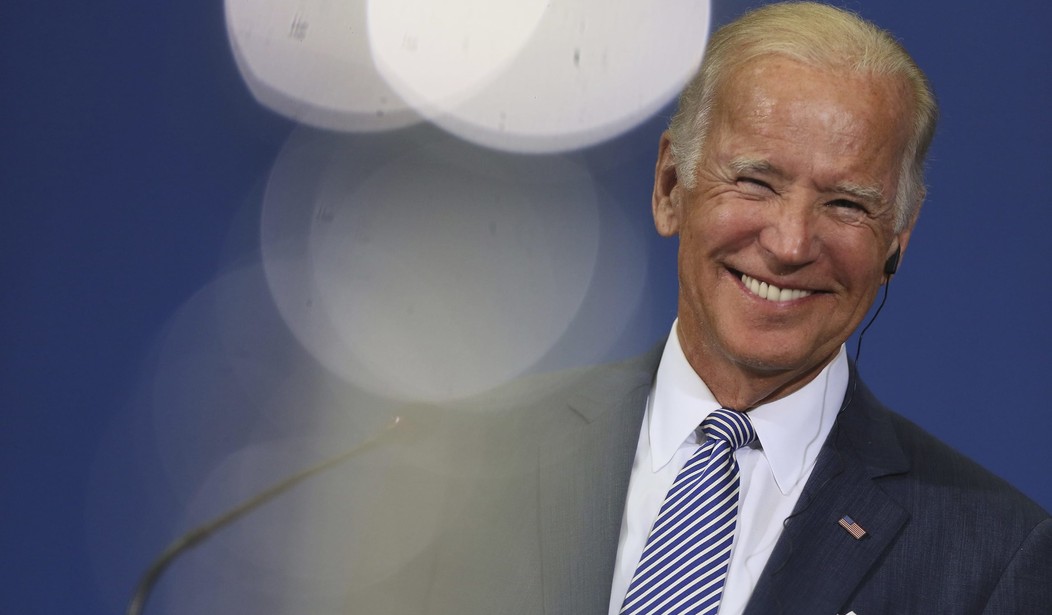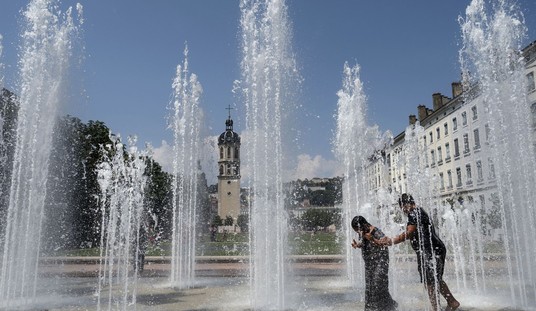On Thursday, former Vice President Joe Biden will jump into the crowded 2020 Democratic primary. He will be the twenty-first candidate to enter the race. Biden has consistently polled well, but he will struggle to find a path to the nomination.
There are three basic categories of candidates in the Democratic primary. Some candidates are not really serious and do not have a realistic path to the nomination. Others have a shot, but are long shots because their platforms are small. Then there are ten serious candidates, who themselves break down into more categories. Biden will be a serious candidate.
1. The unserious
Marianne Williamson may be Oprah’s spiritual guru, but she lacks governing experience and Democratic voters are unlikely to take her seriously. When Trump beat his Republican opponents in 2016, he was more than a mere celebrity activist. He drew wall-to-wall media coverage from the beginning. By contrast, the media considers Williamson a snooze. They’re focused on South Bend Mayor Pete Buttigieg and former Rep. Beto O’Rourke.
A few congressmen have entered the Democratic field. Rep.s Tim Ryan (D-Ohio), Seth Moulton (D-Mass.), and John Delaney (D-Md.) are likely attempting to increase their political profiles. None of these white men has a real shot at displacing the senators and governors in the race. Delaney may have been the first to declare his candidacy for 2020 (back in 2017!), but he does not have a realistic path to the nomination.
Mike Gravel, a former senator from Alaska (1969-1981) and a Democrat and Libertarian candidate for president in 2008, seems even less likely to have a path forward.
2. The long shots
Some candidates in the race have the potential for a breakout, but will almost certainly make it nowhere near the nomination. Andrew Yang has a strong presence on the internet due to his focus on one issue — the universal basic income (UBI). Rep. Eric Swalwell (D-Calif.) has focused his time in Congress on the Trump-Russia collusion narrative, and his campaign is focusing on gun control.
Julian Castro, secretary of Housing and Urban Development under Obama (2014-2017) and former mayor of San Antonio, Texas (2009-2014), is a genuine Hispanic and he likely appeals to the identity politics branch of the Democratic Party. Like Wayne Messam, the black mayor of Miramar, Fla., however, Castro is unlikely to break out in a Democratic field where mere racial diversity is not enough to win the intersectionality mantle.
Rep. Tulsi Gabbard (D-Hawaii) is running as an inspiring moderate, signaling her support for religious freedom even for those “hateful” Roman Catholics who don’t want to celebrate LGBT identities. Gabbard has a long shot possibility, but at the end of the day, she’s a congresswoman who has angered Sen. Mazie Hirono (D-Hawaii).
3. Biden’s real competition
The ten serious candidates in the race have different paths to the nomination, and Joe Biden cannot compete in many of the “lanes” that are shaping up.
Rep. Robert Francis “Beto” O’Rourke (D-Texas) and Pete Buttigieg — mayor of South Bend, Ind. — have dominated the “inspiring young candidate” lane of the Democratic primary. O’Rourke emerged as the fresh-faced Democrat to face Sen. Ted Cruz (R-Texas) in the Texas Senate race, and he raised an impressive amount of money. O’Rourke’s campaign coffers and his media coverage make him a serious contender.
Buttigieg seems to have won the hearts of Democrats and the media at this moment, but he will have to work hard to keep his celebrity candidacy from fizzling out. “Mayor Pete” has an impressive resume. A Rhodes scholar who speaks many languages, he took a break from being mayor to serve in Afghanistan, and he soared to a second term with impressive popularity. He may not have truly turned South Bend around, but the media has hailed him as a change agent.
Joe Biden also can’t compete against the female senators. Sen. Kirsten Gillibrand (D-N.Y.), Kamala Harris (D-Calif.), Amy Klobuchar (D-Minn.), and Elizabeth Warren (D-Mass.) have an immediate leg up on Biden when it comes to intersectionality. But each of them has emerging problems.
Klobuchar is infamous for treating her staff poorly. Warren’s DNA test fiasco has only worsened President Donald Trump’s “Pocahontas” jibes, and her campaign seems to be imploding. Gillibrand is perhaps most famous for complaining that the top Democrats are white guys, a theme that re-emerged this week.
Kamala Harris has always had the edge when it comes to identity politics, but her attempt to pander on marijuana fell flat, and she’s attempting to run away from her record as California’s attorney general. That record is horrific — Harris actively prosecuted her political enemies, using the government to stifle pro-life speech.
Sen. Cory Booker (D-N.J.) is winning the “endorsement primary,” and he seems to have a good shot at winning Iowa. He is the most viable black candidate, besides Kamala Harris. Booker has little to show for himself, besides embarrassing moments like his “This is my Spartacus moment.” Yet his charisma seems to be carrying him far in the primary.
Former Gov. John Hickenlooper (D-Colo.) and current Gov. Jay Inslee (D-Wash.) have yet to make a big splash in the primary, but they both have the potential to emerge. Joe Biden’s entry into the race decreased their chances to emerge as the “elder statesmen” of the primary, however.
Sen. Bernie Sanders (I-Vt.) has always held a strong edge in the 2020 primary, since he was the runner-up in 2016 and many of his supporters believe the Democratic National Committee cheated against him to nominate Hillary Clinton.
Sanders is the pure socialist progressive in the race, and so many of the other candidates — Warren most especially — are trying to be him. He has remade the Democratic Party, and his competitors have fallen in line with his ideas. When Sanders said convicted felons should be able to vote from prison — even terrorists the Boston Marathon bomber — Kamala Harris did not have the common sense to just say no. Only Buttigieg did.
What is Biden’s path to victory?
Joe Biden, who was the more liberal candidate for president in 1988 and 2008, is now a moderate “elder statesman.” Biden also attracts a great deal of support because many Democrats associate him with Barack Obama. Like Clinton in 2016, Biden will promise to continue Obama’s agenda, but with even more credibility.
Biden has faced his own mild #MeToo scandal for making women and children feel uncomfortable with his “tactile” politics. Creepy hugs and hair-sniffs may not turn many Democrats away, however. Shortly after the scandal gained attention, MSNBC co-host Mika Brzezinski and Oprah Winfrey leapt to Biden’s defense on the issue.
The more serious threat to Biden may be his corruption. As Biden and then Secretary of State John Kerry went soft on China, their sons made out like bandits with nuclear, military, and business deals in the Middle Kingdom. Biden also may have intervened to stop Ukraine’s investigation into a gas firm that cost the country $1.8 billion in aid funding — and Biden’s son is on the company’s board.
Like Sanders, Biden has a strong chance at appealing to the Rust Belt voters who gave Trump the presidency in 2016. Many of the fresh-faced Democrats may end up forfeiting these voters, but Sanders and Biden will appeal to them.
Biden will be a serious contender for the Democratic nomination, but it will be a long, hard slog for the former vice president. His entry into the race certainly makes it more interesting, however. It will be interesting to see if Gillibrand has her moment and if Democratic voters turn away from the white men. As it stands, however, Biden, Sanders, and either Beto or Buttigieg seem the most likely victors — although Kamala Harris and Cory Booker could very well unseat them.
Follow Tyler O’Neil, the author of this article, on Twitter at @Tyler2ONeil.









Join the conversation as a VIP Member